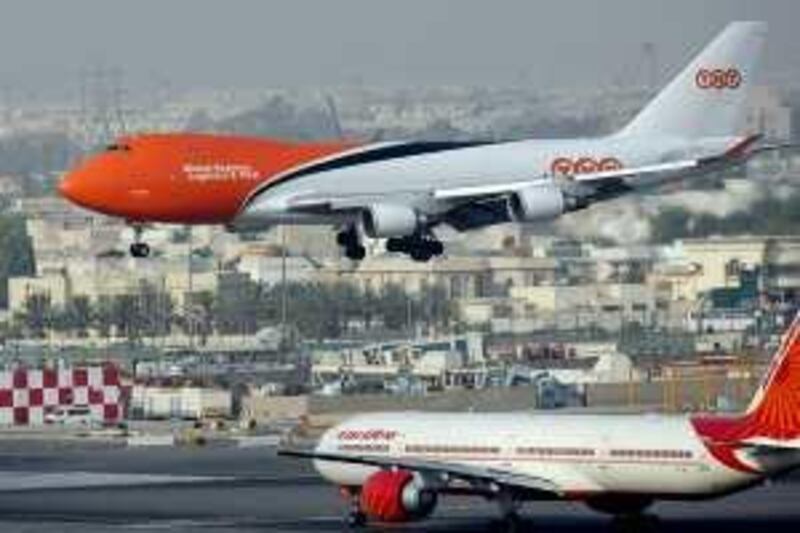Airlines pledged to slow the growth of aviation-related emissions this week, as industries around the globe stake positions on climate change in advance of a UN meeting on the issue this year. The International Air Transport Association (IATA), with 200 airline members representing 90 per cent of all commercial traffic, said members had agreed to increase fuel efficiency as well as adopt new technologies.
"The aviation sector is united in calling on world leaders to retain a global sectoral approach to reducing aviation emissions," IATA said on Tuesday. Airlines are promising to achieve a 1.5 per cent average annual improvement in fuel efficiency to 2020, stabilise emissions with carbon-neutral growth from 2020 and cut emissions by 50 per cent by 2050 compared with 2005, according to the proposal. The plan will be discussed during the UN's Framework Convention on Climate Change in Copenhagen in December.
The Gulf's long-haul airlines threw their support behind the proposal, which was presented to the UN in New York this week. Included in the five-person aviation delegation was a representative from Qatar Airways, which plans a test flight using cleaner burning fuel derived from natural gas this year. "We believe [the proposal] represents an acceptable and unified position for the aviation industry to take to Copenhagen," an Etihad Airline spokesman said yesterday.
Giovanni Bisignani, the director general and chief executive of IATA, said on Tuesday that airlines should slow emissions growth under a broad approach. "Climate change is a global problem. Aviation is a global industry. And we need a global approach for this industrial sector if we are to deal with climate change effectively," said Mr Bisignani. The comments included a tacit criticism on the EU's emissions trading scheme, which could tax nearly 4,000 airlines and other air operators flying in and out of Europe based on their emissions, beginning in 2012.
"Mechanisms designed for ground-based polluters will not work effectively for aviation which can emit CO2 across borders and over the high seas even on a single flight," Mr Bisignani said. "Already, unco-ordinated national and regional schemes are creating a patchwork of punitive taxes that fill government coffers, but do little or nothing to effectively manage aviation's emissions." IATA is working closely with the International Civil Aviation Organisation to prevent excessive regulatory hurdles for airlines, which account for less than 3 per cent of global carbon-dioxide emissions. Its contribution is expected to rise to 5 per cent by 2050, as air travel becomes more common through globalisation and lower fares.
IATA member airlines fly more than 11,000 aircraft, and European aircraft manufacturer Airbus this week forecast 25,000 new passenger and freighter aircraft will be delivered by 2028. The UAE's fast-growing long-haul airlines, Etihad Airways and Emirates Airline, support the IATA proposal and said their new aircraft included the latest energy-efficient engines from General Electric and Rolls-Royce.
"IATA's 'four-pillar' strategy establishes the over-arching strategic principles, while allowing the finer tactical details to be developed later, through further discussion and debate." said an Etihad spokesman. Etihad has said it plans to test biofuels, a renewable energy with fewer carbon emissions than standard jet fuel. "We are committed to improving our own emissions through a combination of initiatives," the spokesman said.
A spokeswoman from Emirates said that investing in newer, more efficient aircraft was the Dubai airline's greatest contribution to environmental protection. "Emirates supports IATA's proposal for reducing global emissions, and we have been an active participant in the industry's dialogue," she said. "We recognise the contribution of the aviation industry to global greenhouse-gas emissions and are committed to being part of the industry solution."
igale@thenational.ae





